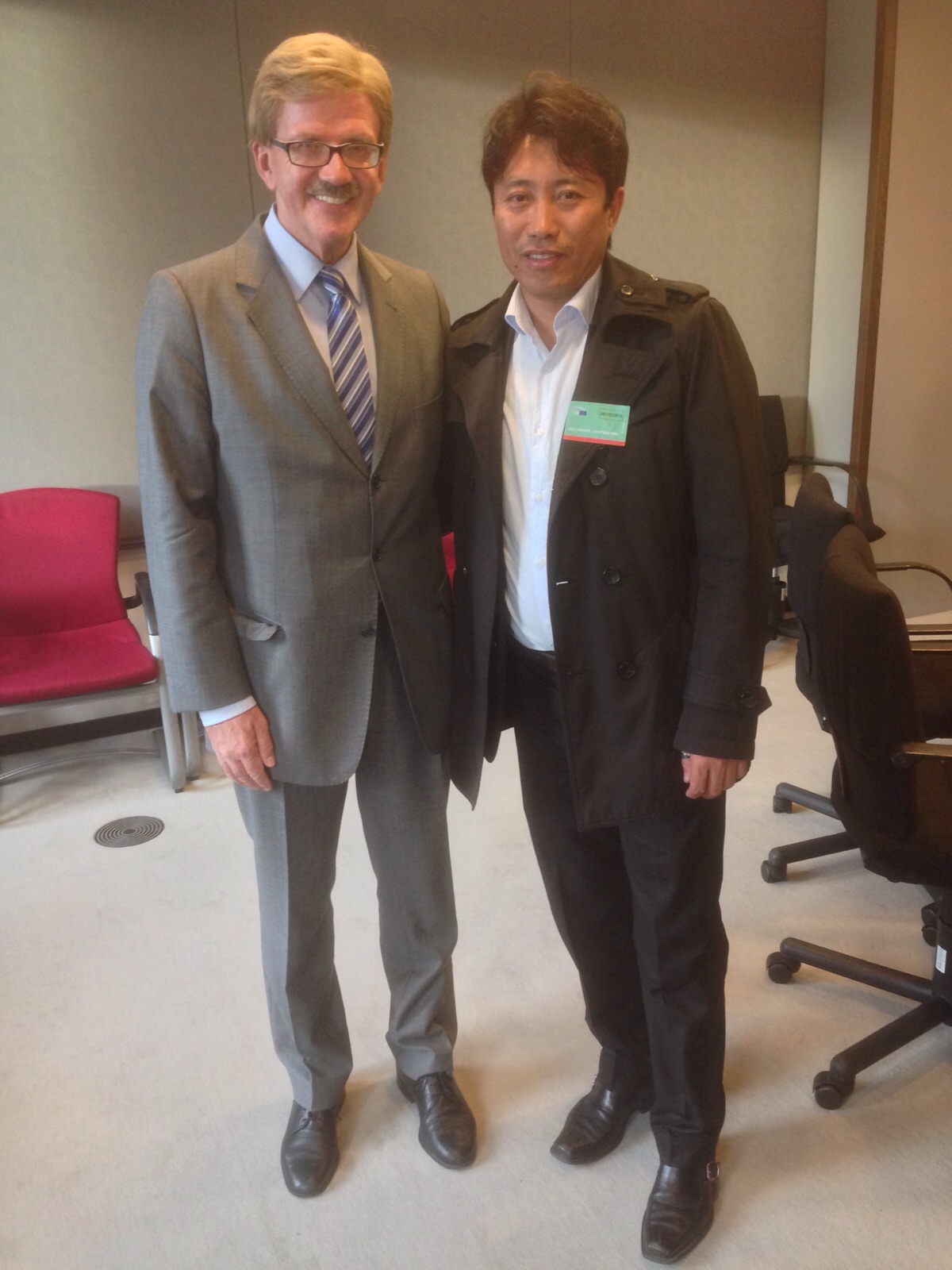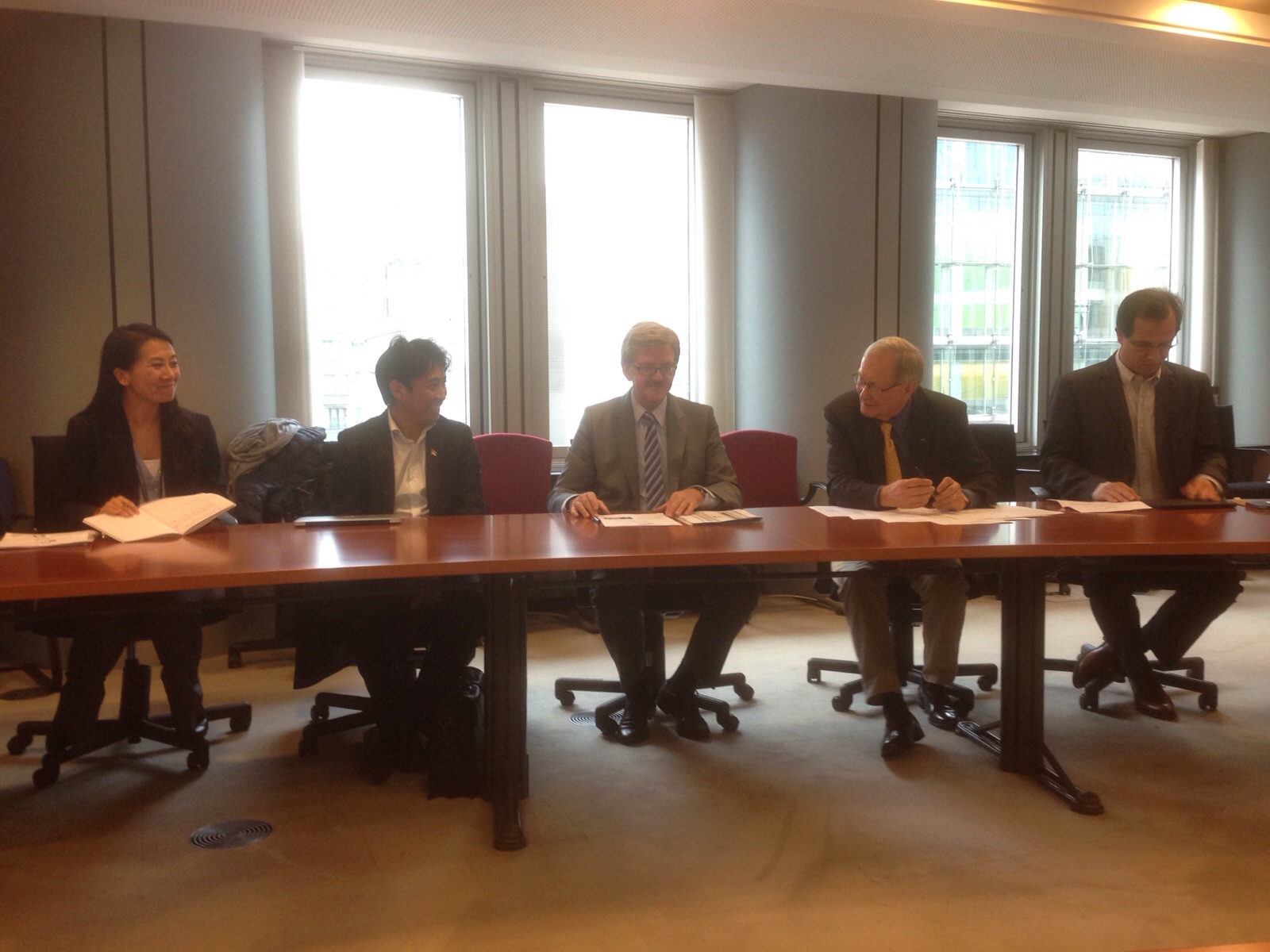Lobsang Tsering at the TIG Meeting
October 20th, 2015
For the TIG-meeting in October, we welcomed Lobsang Tsering as special guest. He was born in 1983 in Eastern Tibet and raised by his uncle Tenzin Delek Rinpoche. In 2007 he escaped to France, where he is living ever since.
During the TIG Meeting Lobsang Tsering testifies about the circumstances of his uncle’s death in a Chinese prison:
Tashi Delek. I wish to testify on the mysterious death of my uncle Tenzin Delek Rinpoche on the 12th of July 2015 in the Chuandong prison near Chengdu-City. He was 65 years old. He was sentenced to life imprisonment for a crime he never committed.
Rinpoche was born to a nomad family in 1950 in Lithang in Eastern Tibet. He became monk at the age of seven. His Holiness the Dalai Lama recognised him as a reincarnation of a Tibetan Buddhist teacher.
He devoted his life to help his community preserving Tibetan Buddhist culture, language and environment. Between 1991 and 1995, he built seven monasteries and managed the construction of old age homes, medical clinics and schools. He was also involved in bringing medical facilities to rural Tibetan areas. Even a Chinese official had acknowledged Ripoche’s beneficial medical work in his region.
My uncle was aware of the importance of ecological balance in the fragile environment of Tibet. He criticised mining practices, which pollute the rivers and destroy the soil, and logging practices, which cause flooding and soil erosion.
Rinpoche’s ability to raise awareness on critical issues caused concerns amongst Chinese officials. On April 7, 2002, he was arrested along with his attendant Lobsang Dhondup. They were accused of allegedly being involved in a bomb blast in Chengdu-City. He was sentenced to death with a two-year reprieve on December 2, 2002. His attendant Lobsang Dhondup was executed on January 26, 2003. Following repeated appeals from international human rights organizations, Rinpoche’s sentence was commuted to life imprisonment on January 24, 2005.
My uncle was suffering from very poor health, including a possible heart condition, frequent unconsciousness and uncontrollable shaking of parts of his body. However, the Chinese authorities rejected our family’s appeals for his immediate release on medical parole. Instead, we were threatened with severe consequences of bringing appeals.
The European Parliament passed several resolutions expressing its concern for Rinpoche’s arrest, his state of health and called on Chinese authorities for his release.
After my uncle’s death on the 12th of July this year, the Chinese prison officials cremated his body under strict surveillance and against our family wishes, depriving us the right to carry out traditional Buddhist funeral rites. Our family has reasons to believe that Chinese authorities murdered Tenzin Delek Rinpoche because witnesses, who were allowed to view Rinpoche’s body, noticed that his mouth and nails had turned completely black.
His case is just the tip of the iceberg when it comes to political repression in Tibet today. Currently there are over 2,100 Tibetans imprisoned for political reasons.
In 2014, 10 Tibetans died in Chinese prisons or immediately following their release because of torture and denial of medical services.
On behalf of my grateful family, I urge the European Parliament to call for the immediate:
- Investigation of Tenzin Delek Rinpoche’s death and the death of other Tibetans, who died in prison.
- Religious freedom for Tibetan monks, nuns and lay people.
- Implementation of the Tibetan language in schools.
- Halt to the forceful resettlement of Tibetan nomads and herders.
- Resumption of the dialogue between the Government of China and the Representatives of His Holiness the Dalai Lama.



